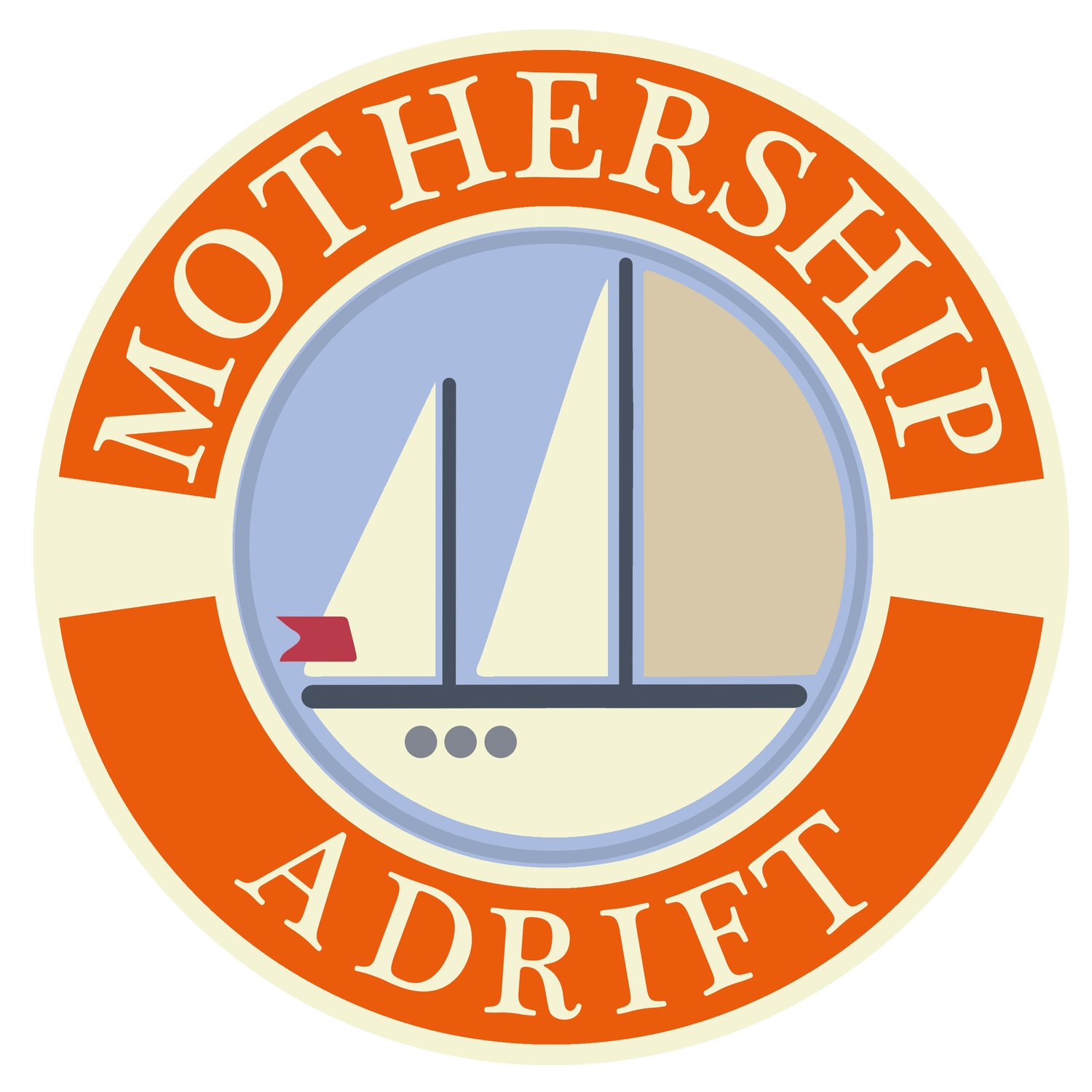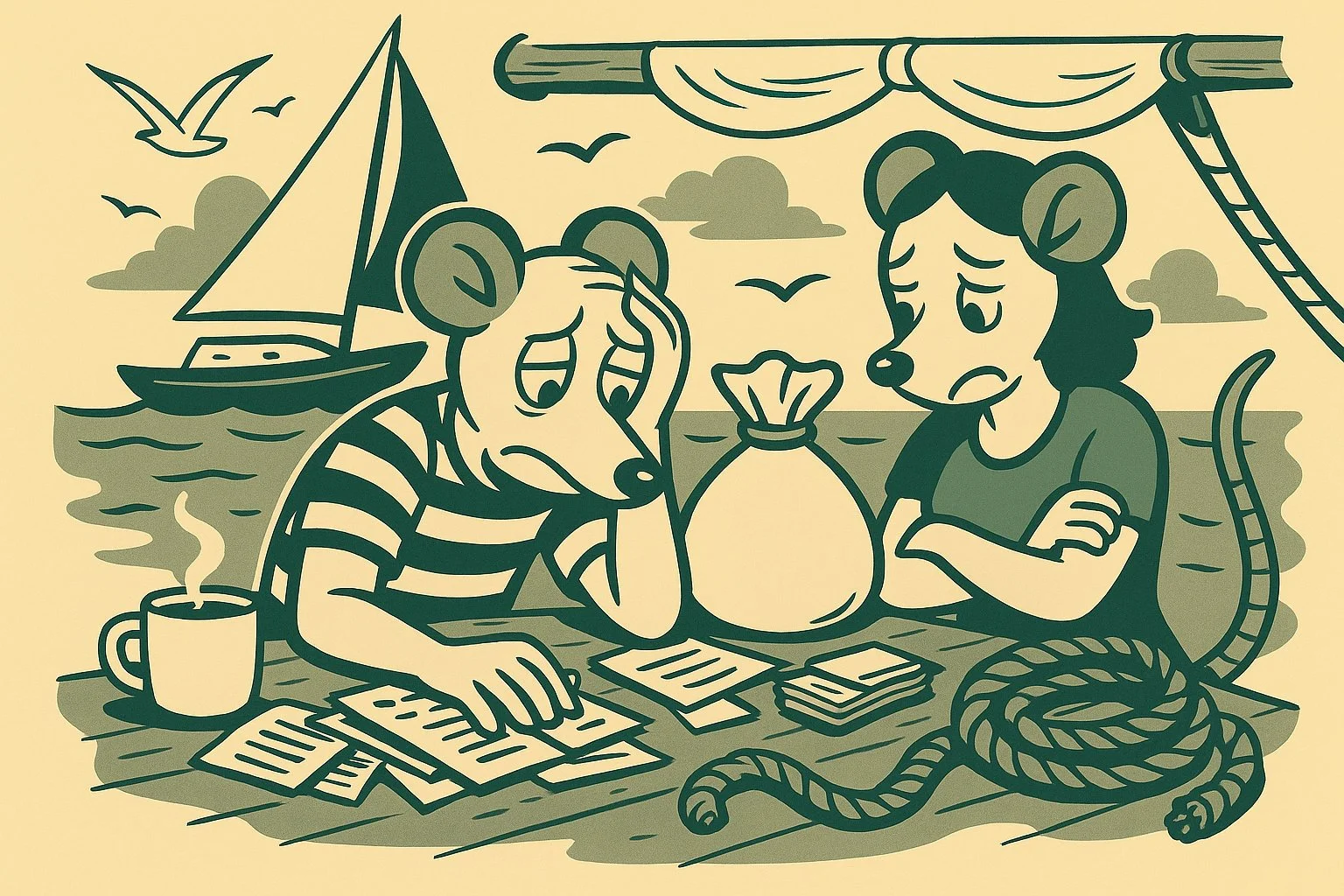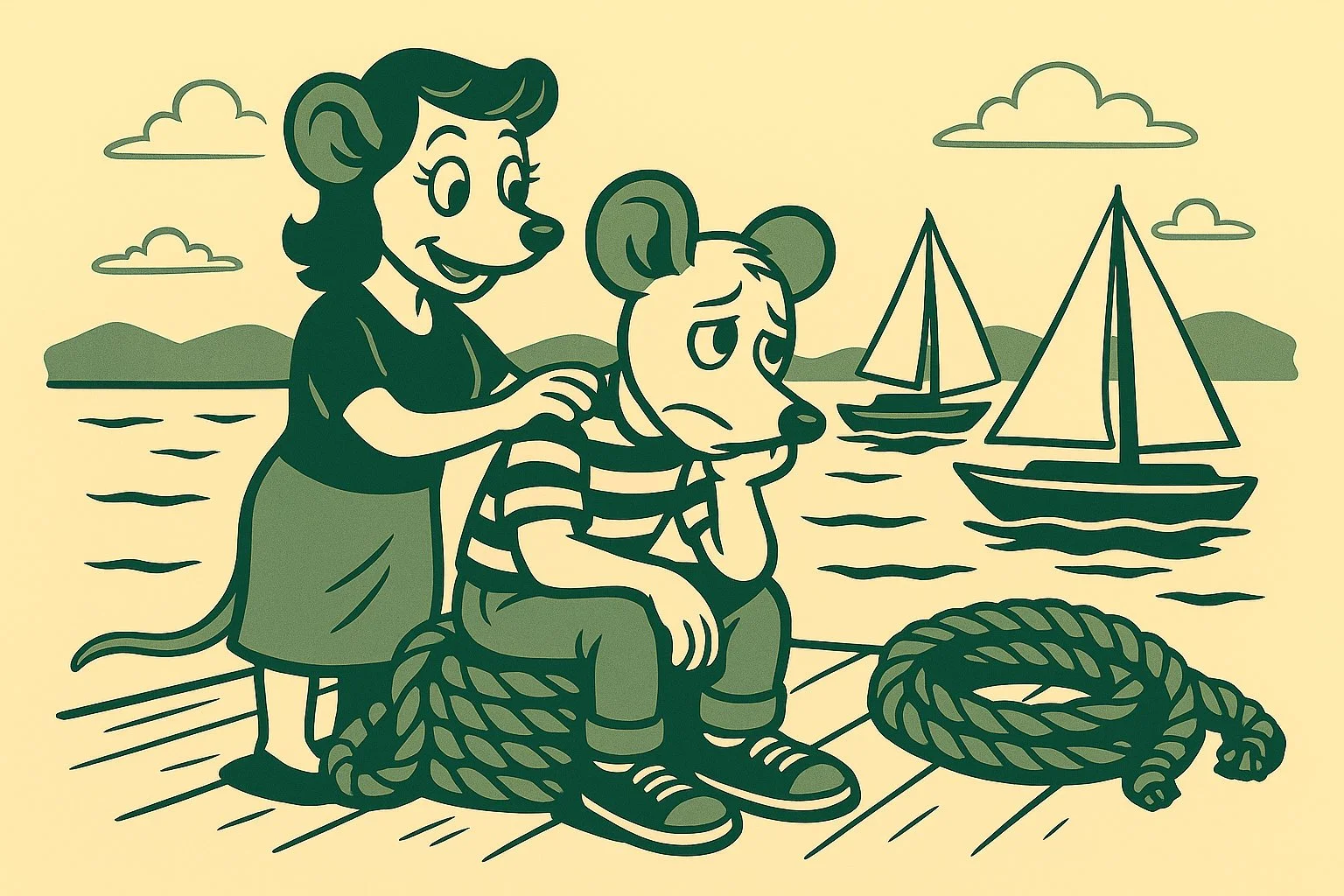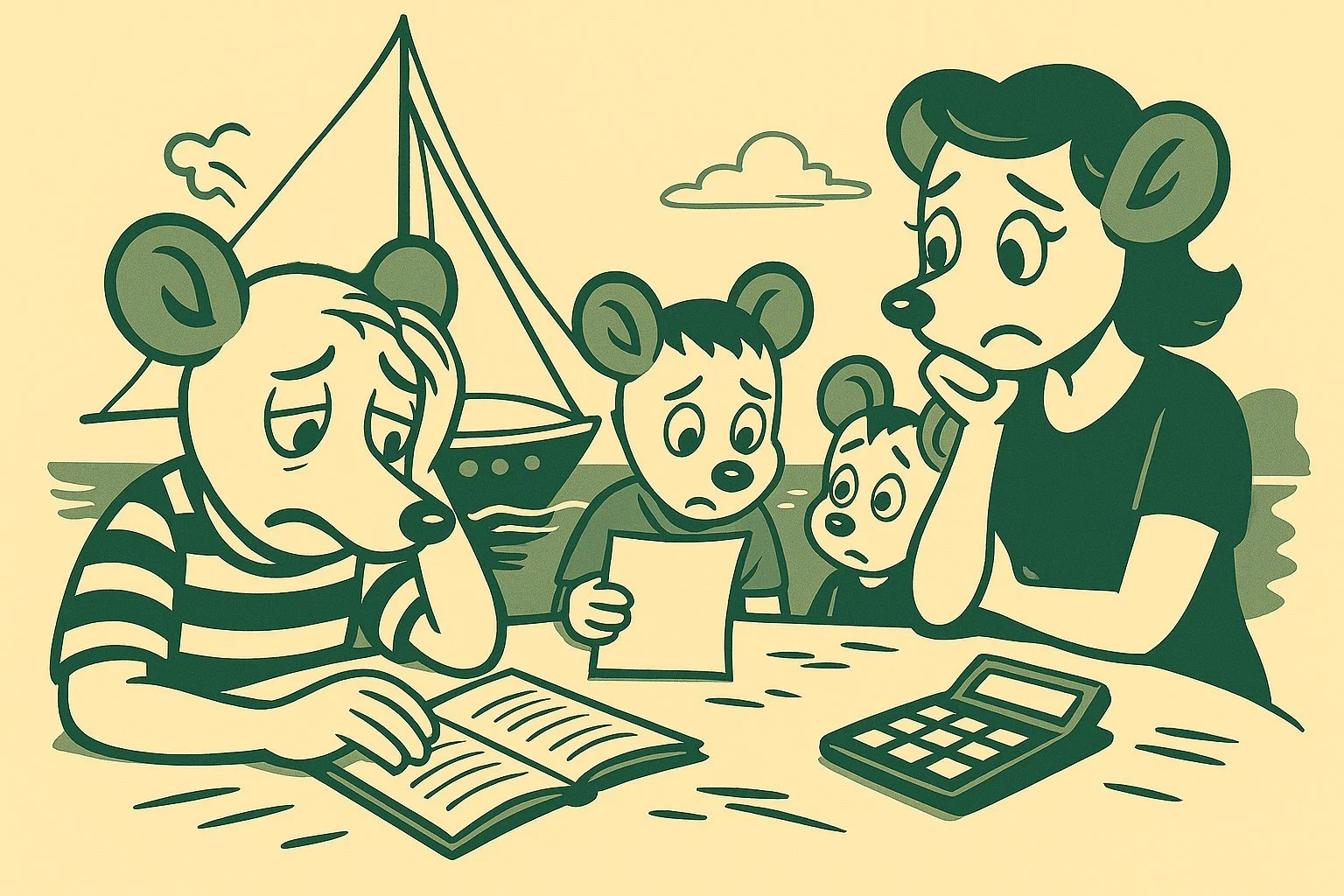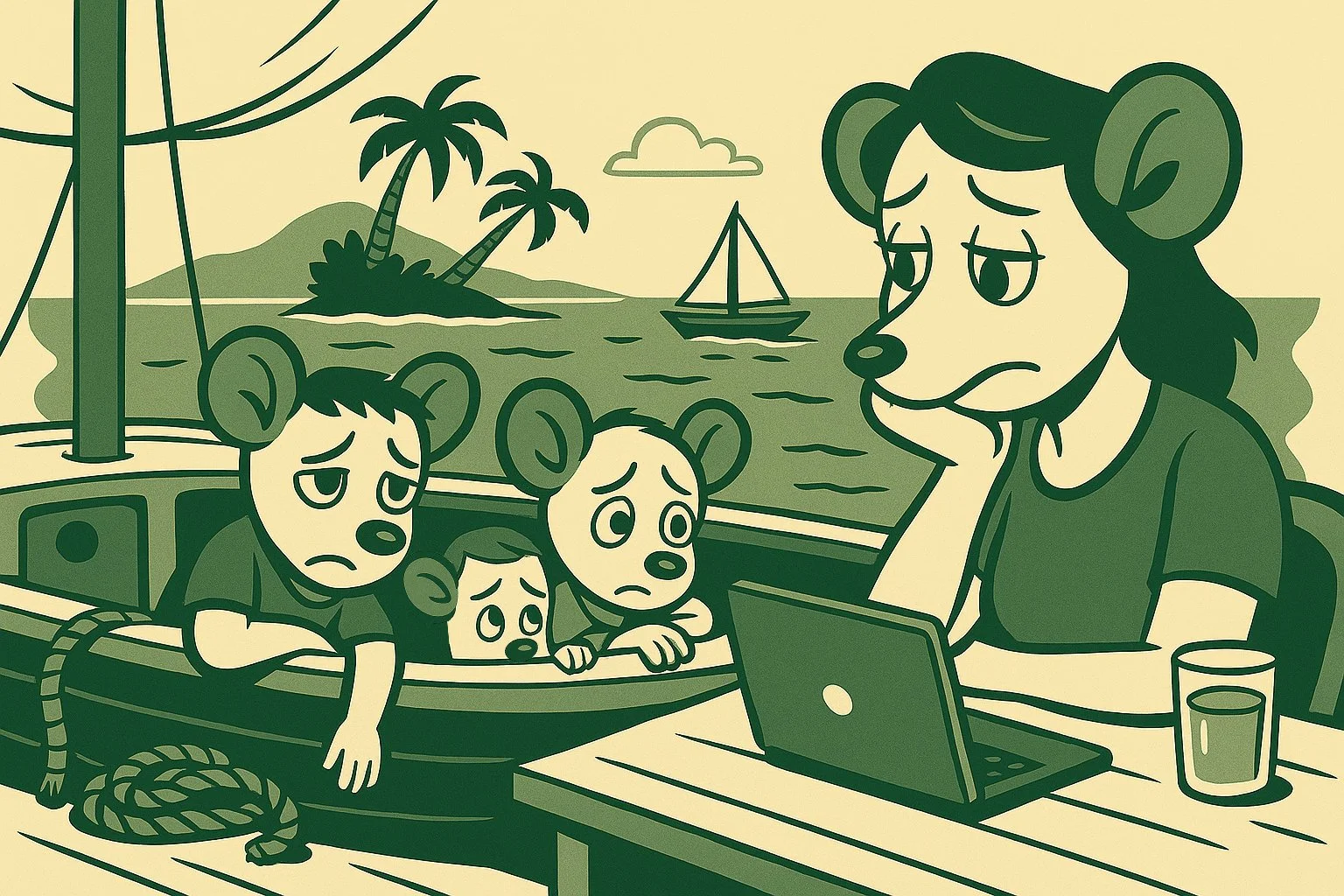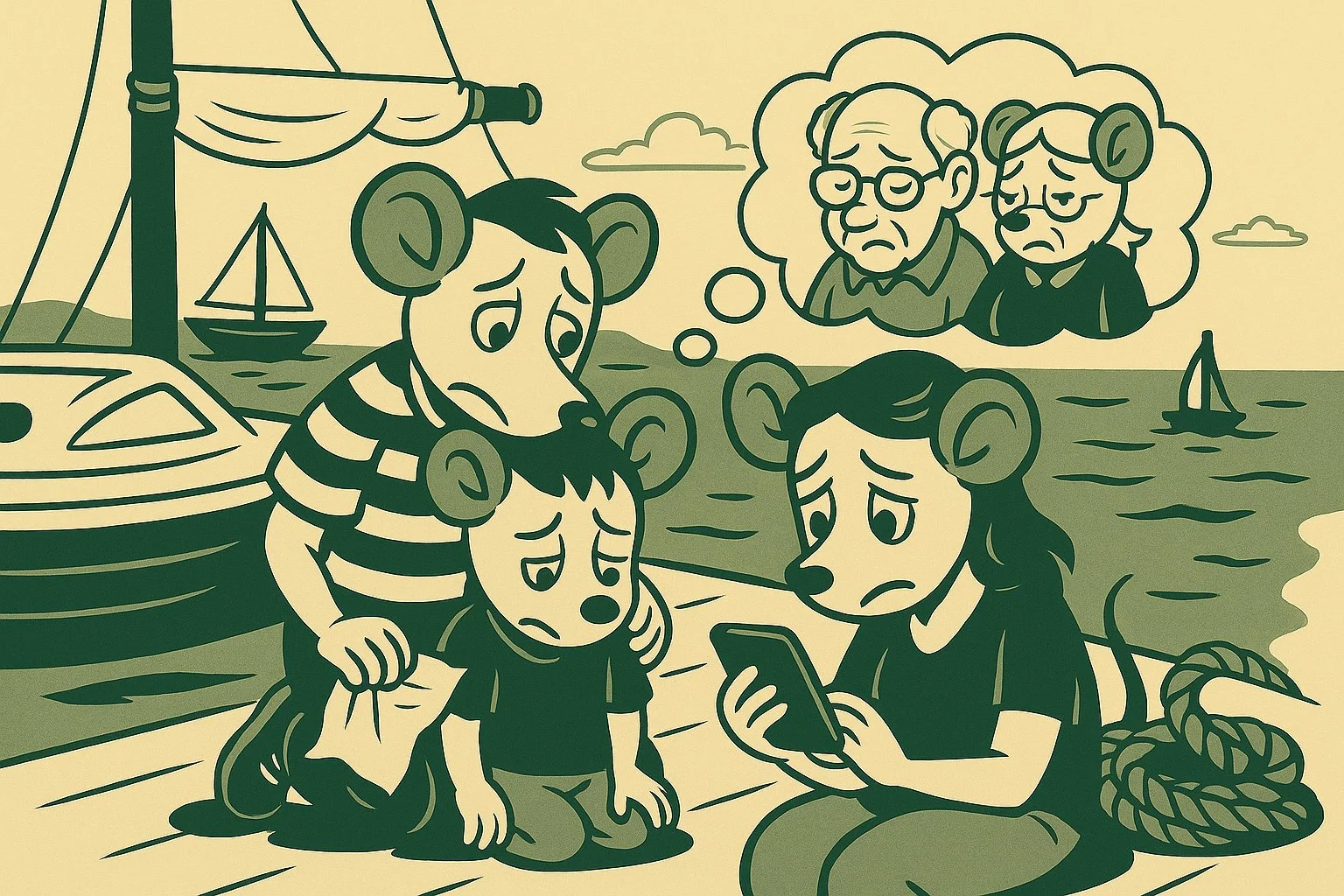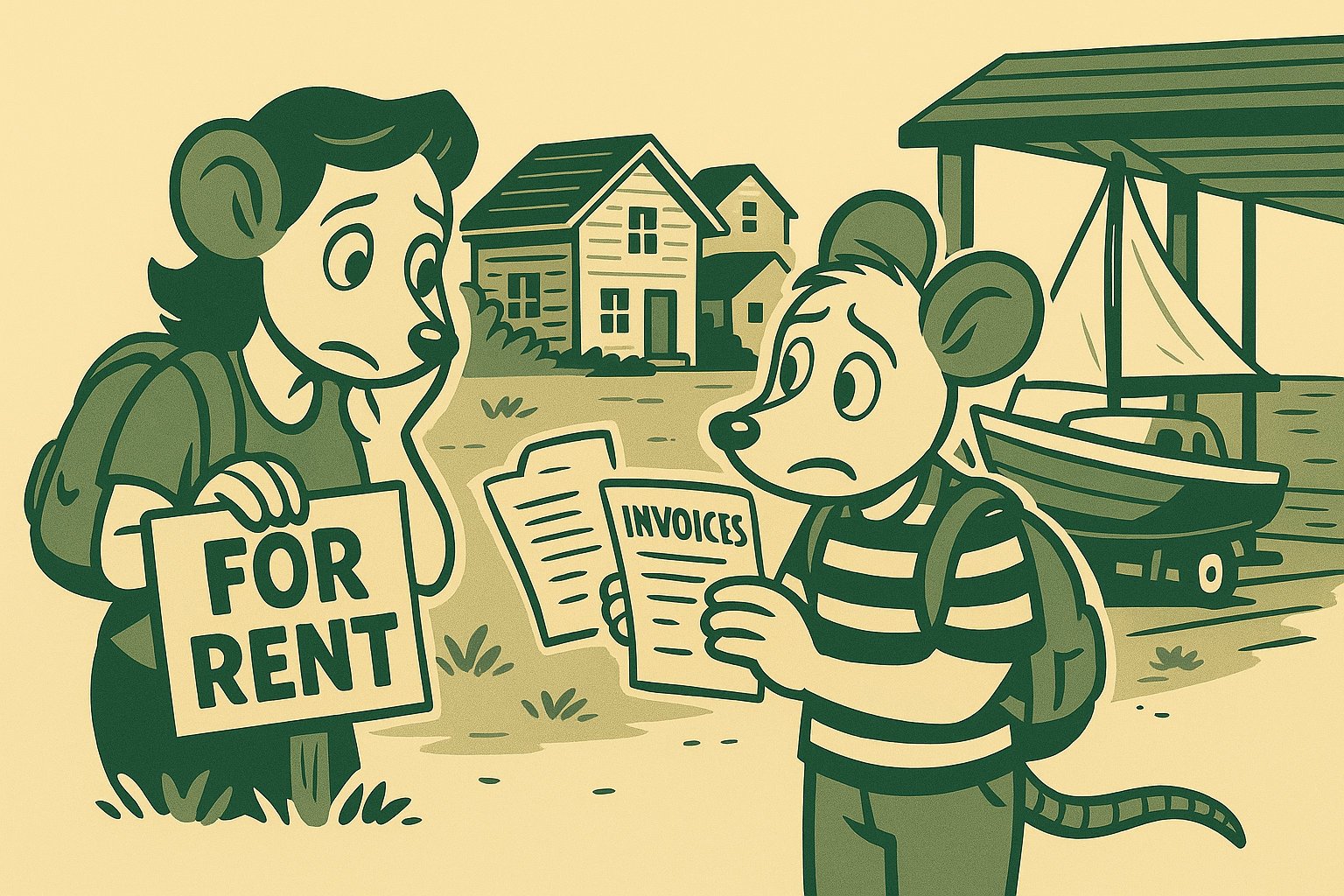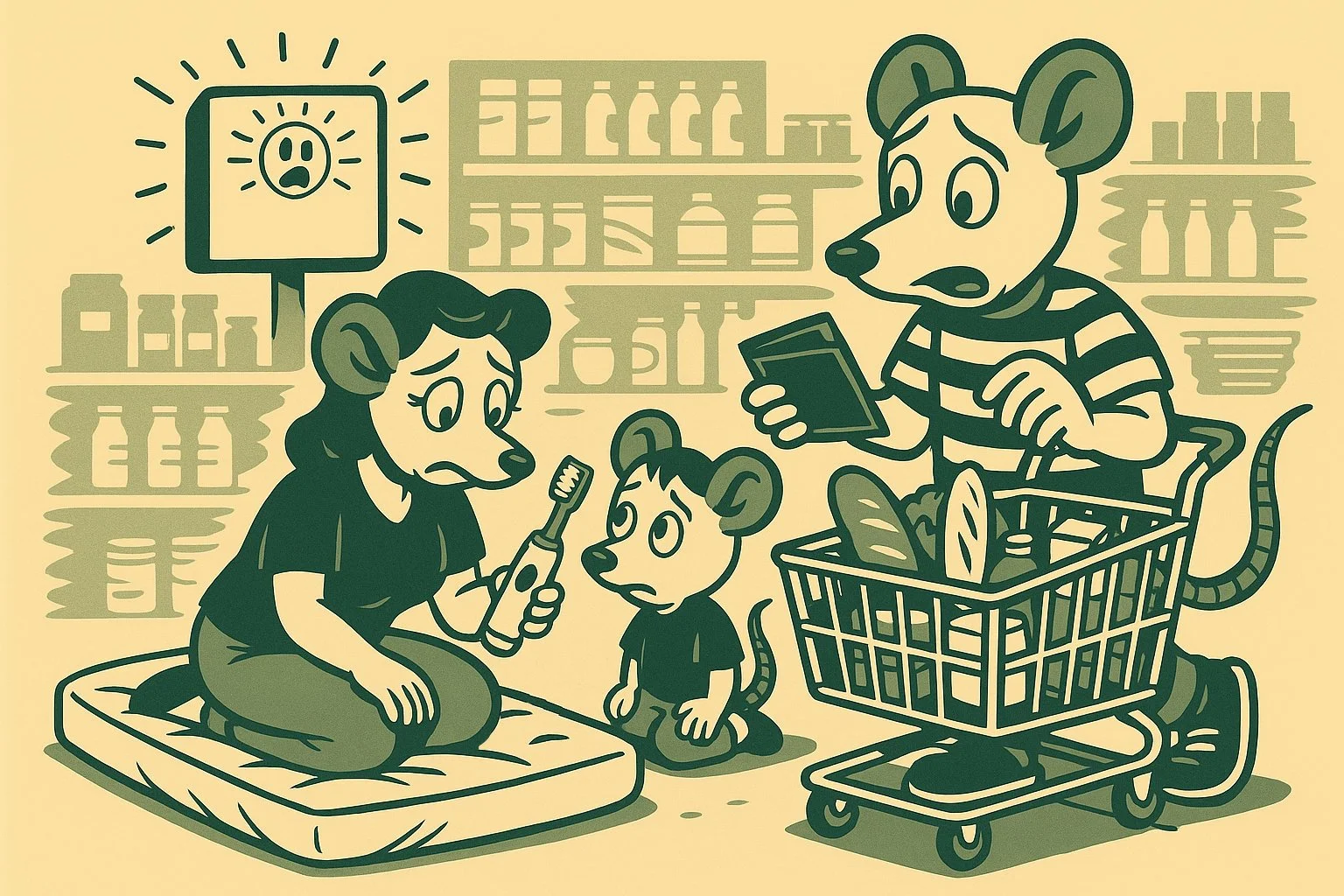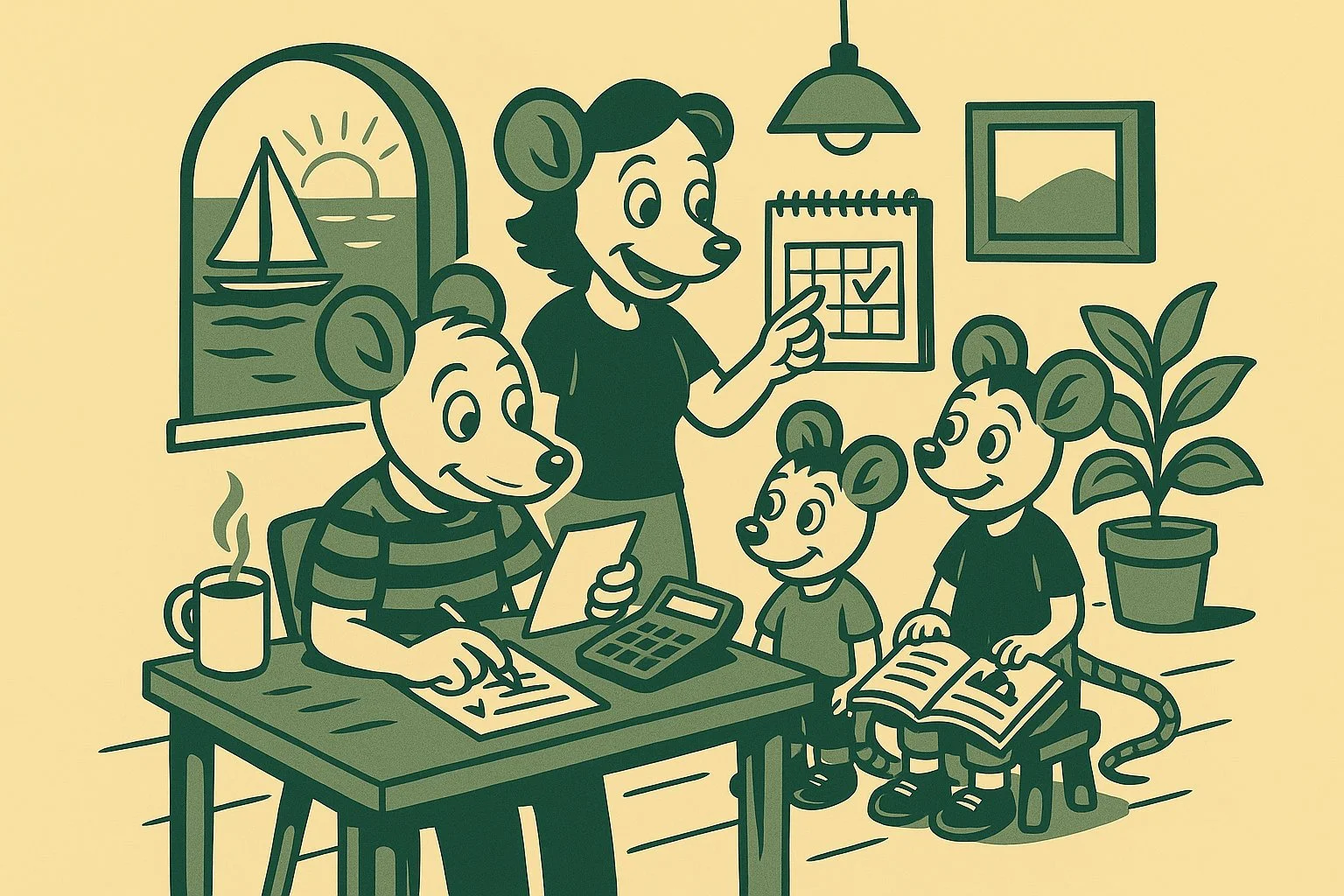Financial Strain: When the Money Runs Out
01-05-06
“Money can’t buy you happiness, but it does bring you a more pleasant form of misery.”
As bizarre as it might seem to freedom lovers, adventure fatigue and escape burnout can happen
The Perennial Question
If there’s one question guaranteed to make every long-term cruiser sigh into their sundowner, it’s this:
“So… how much does it cost to live on a boat?”
It’s asked with genuine curiosity, usually by someone imagining that because the ocean is free and the wind is free, life at sea must be, if not necessarily free, at least somewhat cheap. And yes, technically it is. Just as technically, walking to the moon is free if you’ve got the legs for it.
Many of us went to sea believing the numbers would somehow work themselves out; that with enough spreadsheets, solar panels, and YouTube-fuelled optimism, the dream would fund itself. But after a few years, even the most disciplined budget begins to look like it’s on life support.
So… how much does it cost to live on a boat?
Most cruisers don’t stop because they want to; they stop because their bank balance insists on it. When the savings vanish and the “passive income” proves neither passive nor income, reality starts to bite.
The Quiet End
Cruising, as I’ve said before, rarely ends in a blaze of drama. More often, it ends quietly. Because the money has simply run out. Not in one catastrophic purchase, but through a slow financial haemorrhage you keep calling “a temporary glitch,” long after the evidence says otherwise.
For this section I began listing all the times we’d raided our “emergency fund” but stopped halfway through. Because even the most frugal cruiser (the one living on lentils, anchoring for free, and washing in a saucepan) eventually gets mugged by multiple real-world costs. They arrive uninvited: a medical bill here, a marina fee there, a surprise flight home, a broken autopilot, a part that costs twice as much to ship as to buy.
Even the most frugal cruiser eventually gets mugged by multiple real-world costs
And those are the relatively predictable ones. The true wildcards are things like economic shocks, currency swings, inflation spikes or simply the price of diesel doubling overnight. Each one’s a small ambush with an invoice attached.
The Ripple Effect
Money pressure doesn’t just drain the wallet; it seeps into everything else. Multiple studies, from the American Psychological Association to Relate UK, agree that money is the number-one cause of relationship arguments. And, perhaps not coincidentally, one of the main reasons cruising dreams end early.
Financial anxiety feeds emotional fatigue. One partner becomes the worrier, the other the eternal optimist, and resentment soon follows. As I’ve said elsewhere, the overlap between financial strain, fatigue, and relationship trouble isn’t a Venn diagram, it’s practically a full circle.
Money pressure doesn’t just drain the wallet; it seeps into everything else including emotional fatigue
On a tight budget, financial decisions become either depressingly self-evident or dangerously contentious, because money problems rarely stay contained. They lead to frustration, arguments, inaction, deferred maintenance, more breakdowns, higher costs, and deeper frustration. A vicious loop that’s ended more circumnavigations than bad weather ever did.
When the Dream Starts to Shrink
It’s not just adults who feel it. Kids sense financial tension immediately. The sense of freedom that fuelled the voyage turns into guilt (over spending, or not spending) on things like online schooling, trips ashore, even small treats.
We made the arduous crossing from Fiji to New Zealand only to discover that a combination of expensive repairs and rising local costs meant we couldn’t even afford to visit the South Island, a highlight we’d planned long before we began, and a potential home-schooling bonanza for the kids.
In Colombia and Panama, maintenance costs forced us to cancel inland trips to the coffee and cocoa regions, and as for eating out to experience local food. Forget it. At times like these, you start asking yourself what the point is of pouring money into a boat and a dream to keep them both afloat if you can’t afford to actually go anywhere.
You ask yourself what the point is of pouring money into a boat and a dream if you can’t afford to actually go anywhere
When funds dry up, people often withdraw from the cruising community too, skipping dinners, sundowners, or group outings to save money. That isolation compounds burnout and chips away at mental health, especially if companionship has been your safety valve. It also fuels a sense of failure, particularly among cruisers who pride themselves on independence, resilience, and competence.
Freedom, Until It Isn’t
Then there’s family. When we were in Australia, a family crisis hit back home. But flights to the UK were out of reach, and so, for that matter, were the marina fees to leave the boat safely. Few things feel worse than knowing someone you love needs you and you can’t reach them. Frugality, self-sufficiency, and off-grid living are wonderfully liberating, until they aren’t. Too much money ties you down, but too little traps you just as effectively. The real trick, as ever, is having enough to choose.
Few things feel worse than knowing someone you love needs you and you can’t reach them.
Walking the Tightrope
By the time we returned to the Mediterranean, we were walking a financial tightrope. No matter how “off-grid” you think you are, you’re never fully immune from the world’s economic weather system. Inflation was climbing, the cost-of-living crisis biting, and our home rental (the financial lifeline that had kept us afloat) was looking tired and in need of serious attention.
We could have carried on cruising, but it would have been a slog. Maintaining both the house and the boat would’ve stretched us thin. So we decided to bow out gracefully while we could still afford to fix both.
Of course, that came with its own catch. Returning to the UK meant paying to store the boat and losing our rental income. On top of that, some of our most loyal online patrons drifted away once we’d “finished” the adventure. Which, to be fair, although we were still putting out videos and other content, we had stopped cruising.
Maintaining the house and boat would’ve stretched us thin. So we decided to bow out gracefully while we could still afford to fix both
Back on Alien Land
Coming ashore after eight years felt like being a castaway dropped on an alien planet. The first trip to the supermarket was a shock: the cost of a weekly shop felt like being mugged in broad daylight. Then came the bills. Energy, water, council tax. The unseen leaks that land life keeps hidden below the waterline.
We couldn’t even afford to put the heating on. Irenka and I shared a single electric toothbrush (separate heads. Woohoo, luxury!). One evening I came home to find she’d sold our bed. Apparently, too big and ostentatious. It paid for a week’s groceries. Yes, we’d all gone a little mad.
Despite the boat being worth enough to cover our outstanding mortgage, the market remained flat. So it sits there even now, quietly coveting our entire life’s savings.
And that’s the truth about financial strain. It doesn’t just end voyages; it humbles you. It makes you practical. It forces you to face facts, not dreams and sometimes compels you sleep on the floor!
The cost of a weekly shop felt like being mugged - then came the bills.
Adapting to the Next Chapter
So, if you find yourself having to come ashore, sort the practical stuff early: housing, finances, work. Don’t wait until crisis forces your hand. Keep a few of the habits that mattered afloat. Simple meals, energy efficiency, a no nonsense attitude and plan for the psychological dip as much as the financial one. It’s easier to handle when you know it’s coming.
The sea teaches you that everything changes. Weather, tides, fortunes. And that the only way to survive is to adapt. On land, it’s no different. You’re not doomed, just temporarily inconvenienced.
If you find yourself having to come ashore, sort the practical stuff early: housing, finances, work.
The Real Cost
And if anyone asks you, once you’re back home, that inevitable question,
“So… how much does it cost to live on a boat?”
Take a slow breath, smile faintly, and say:
“It costs everything you’ve got. And if you’re lucky, it gives most of it back in wisdom.”
Because in a world where most people never leave the dock, that’s priceless.
If you want more straight-talking tales from life afloat, and information about how financial strain and running out of money can lead to the end of the cruising dream, then you’ll love our upcoming book. We're inviting early readers to join the pre-launch crew and get behind-the-scenes access as we wrestle it into shape. It’s honest, unfiltered, and occasionally useful. Sign up here to get involved, give feedback, and be part of something that’ll either be a bestseller or a brilliant cautionary tale.
